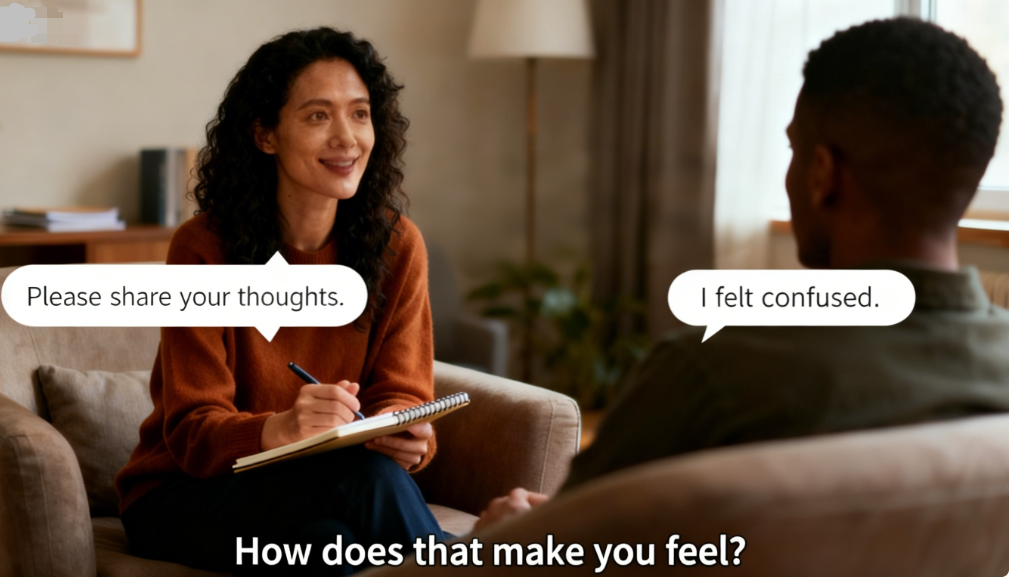How to Seek Help for a Mental Health Problem: A Compassionate, Step-by-Step Guide
Realizing you need help with your mental health is a significant moment of self-awareness and courage. Just like you would see a doctor for a persistent physical pain, seeking support for emotional or psychological distress is a proactive and healthy choice. If you're feeling overwhelmed, stuck, or unlike yourself, know that you are not alone, and effective help is available.

This guide will walk you through the practical steps of reaching out, demystifying the process and empowering you to take that first, brave step.
Step 1: Recognize the Signs and Acknowledge the Need
The first hurdle is often acknowledging that something isn't right. Mental health struggles can show up in many ways, but common signs include:
Persistent feelings of sadness, anxiety, or "emptiness."
Loss of interest in hobbies and activities you once enjoyed.
Significant changes in appetite or sleep patterns (too much or too little).Withdrawing from friends, family, and social situations.
Difficulty concentrating, remembering, or making decisions.
Feeling irritable, angry, or on edge more easily than usual.
Thoughts of hopelessness, worthlessness, or even self-harm.If these feelings are impacting your daily life—your work, your relationships, your ability to function—it’s a clear signal that seeking support is the right next step.
Step 2: Start the Conversation
You don't have to face this alone. Sharing your burden is a powerful act of self-care.
Talk to Someone You Trust: This could be a close friend, a family member, a partner, or a mentor. You don't need to have all the answers or a perfect explanation. Simply saying, "I've been struggling lately and I wanted to talk to you about it," can open the door to vital support.
Reach Out to a Professional Directly: If you feel ready, you can skip straight to contacting a therapist or counselor. This is a completely normal and valid approach.
Step 3: Find the Right Professional Support
There are several pathways to professional help, and one is right for you.
Your Primary Care Physician (PCP): This is an excellent starting point for many. Your doctor can rule out any underlying physical health issues that might be causing your symptoms (like a thyroid problem). They can also provide referrals to trusted therapists or psychiatrists in your network and may manage medications if needed.
Therapists and Counselors: These are licensed professionals (like LPCs, LCSWs, LMFTs, or Ph.D./Psy.D. psychologists) trained to provide talk therapy. They help you understand your feelings, develop coping strategies, and work through challenges. You can find them through:
Online Directories: Psychology Today, GoodTherapy, and TherapyDen have extensive, searchable databases where you can filter by location, insurance, specialty, and issues treated.
Your Insurance Provider: Check your health insurance company’s website for a list of in-network mental health providers.
Psychiatrists: These are medical doctors (MDs or DOs) who specialize in mental health. They primarily focus on diagnosing conditions and prescribing/managing medication. Many people see both a therapist for regular talk therapy and a psychiatrist for medication management.
Crisis and Immediate Help: If you are in crisis or having thoughts of harming yourself, do not wait. Contact the 988 Suicide & Crisis Lifeline by calling or texting 988, or chat online at 988lifeline.org. This service is free, confidential, and available 24/7.
Step 4: Make the First Appointment
Making that initial call or sending that first email can feel daunting, but it's a huge accomplishment.
Prepare Briefly: You might want to jot down a few notes, like a brief description of what you’re experiencing and your insurance information.
What to Say: You can be direct: "Hi, I'm looking for a new client appointment for therapy." The scheduler will guide you from there. Many therapists offer a free 15-minute phone consultation to see if you’re a good fit—this is a great, low-pressure way to start.
Step 5: Prepare for Your First Session
It's normal to feel nervous before your first appointment.
Remember, It's a Conversation: The first session is often an assessment. The therapist will ask questions to understand your history, your current challenges, and your goals. There is no need to perform or have it all figured out.
Be as Open as You Can: Honesty is the foundation of effective therapy. The more you can share, the better they can help you.
It's Okay to "Shop Around": The therapeutic relationship is unique. If you don't feel comfortable, heard, or understood after a session or two, it is perfectly acceptable to look for a different therapist. Finding the right fit is crucial.
You Are Worthy of Support
Seeking help is a sign of profound strength, not weakness. It is the decision to stop struggling in silence and to start building a life with more clarity, resilience, and peace. The path to better mental health is a journey, and it begins with a single, courageous step. However you choose to start—whether by telling a friend, calling a doctor, or searching online—you are taking positive action for your well-being, and that is something to be proud of.
Note: The information shared here is intended for educational purposes and should not replace professional advice. While the content is based on research, readers are encouraged to seek personalized assistance from qualified mental health professionals for diagnosis and treatment. The website is not responsible for data discrepancies or missed opportunities available elsewhere.









